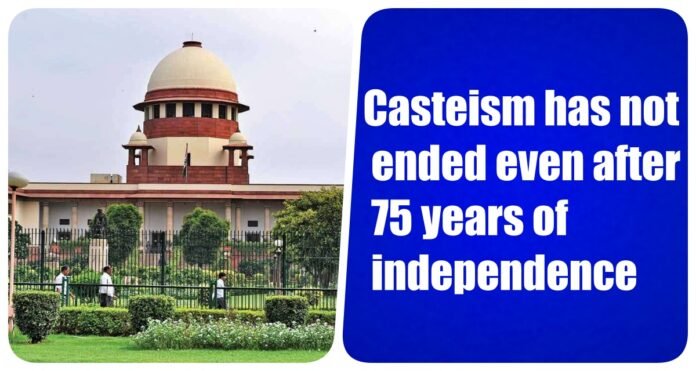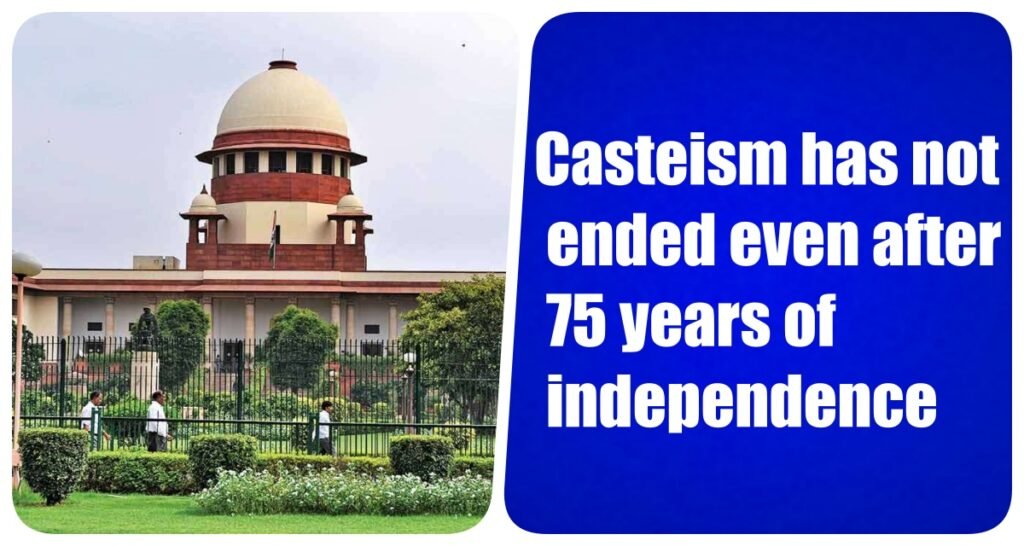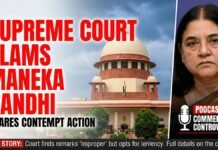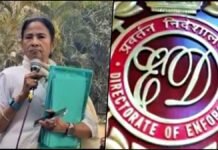
New Delhi: The Supreme Court has said that the incidents of caste-motivated violence show that casteism has not ended even after 75 years of independence and it is the right time when Civil society should react with “strong disapproval” to the horrific crimes committed in the name of caste.
The apex court, while delivering its verdict on a bunch of petitions filed in a case related to honor killings in 1991 in Uttar Pradesh, said it has issued several directions to the authorities before taking stringent measures to stop the honor killings. Already happened. Those instructions should be implemented without further delay. In the said case, three people including a woman had died. The court observed that the “fanaticism” perpetrated by caste-based practices is prevalent even today and it obstructs the Constitution’s objective of equality for all citizens.
A bench comprising Justices Sanjiv Khanna and BR Gavai said, “Two youths and a woman were attacked and murdered for about 12 hours on charges of violating caste social norms. These episodes of caste-motivated violence in the country demonstrate the fact that casteism has not ended even after 75 years of independence.
The apex court upheld the conviction of 23 accused in the case and the acquittal of three persons in view of the ambiguity in their identities. Referring to the aspect of protection of witnesses, the bench said that 12 prosecution witnesses in the case turned hostile. “Even if the witnesses have turned hostile, but if they are natural and independent witnesses and they have no reason to implicate the accused by lying, their evidence could have been accepted,” the court said.

The top court said that the right to testify in courts in a free and fair manner without any coercion and intimidation is “still under serious attack” and if one is unable to testify in courts due to threats or other coercion, it There is a clear violation of rights under Articles 19(1)(a) and 21 of the Constitution.
The bench said, “The right to guarantee life to the people of this country includes the right to live in a society which is free from crime and fear. Witnesses have the right to testify in courts without any fear or coercion.” The bench said that one of the main reasons for the witnesses turning hostile is that they are not given proper protection by the state. This is a “bitter truth”, especially in cases where the accused are influential people and are tried for heinous crimes and they try to intimidate or intimidate witnesses.
Referring to an earlier judgment of the Supreme Court, the bench said, “This unfortunate position persists as the government has not taken any protective measure to ensure the safety of these witnesses, commonly known as ‘witness protection. The bench said that as the guardian of its citizens, the government has to ensure that any witness can safely narrate the truth during the hearing.
The bench said that Dr. R. According to Ambedkar, inter-caste marriage is a way to get rid of casteism to achieve equality. “His vision of ensuring justice and equality for all sections of the society, especially the downtrodden, is well enshrined in the Preamble of the Constitution,” the bench said.
The bench said, “The number of cases of honor killings in this country has come down slightly but it has not stopped and it is high time the civil society comes out with “strong disapproval” about the horrific crimes committed in the name of caste. react.” In November 2011, a trial court had convicted 35 accused in the 1991 Uttar Pradesh honor killing case.
The High Court had acquitted two persons while upholding the conviction of the remaining persons. However, the High Court had commuted the death sentence awarded to the eight convicts to a sentence of life in jail.















































